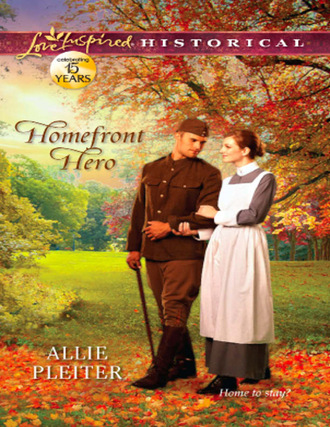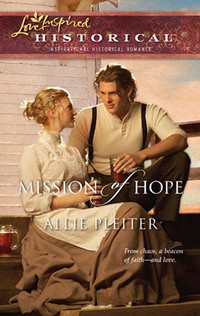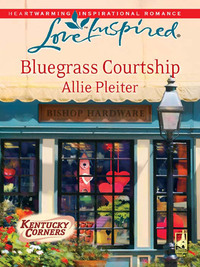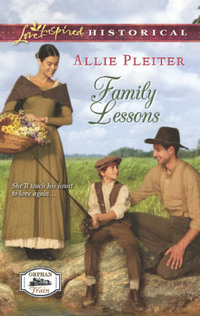
Полная версия
Homefront Hero
“I suspect you are.” Barnes took off his glasses and pinched the bridge of his nose. “I don’t like to see our boys coming home in pieces like this. Victory can’t come soon enough, in my book.”
The general had handed him the perfect opening, and John was going to take it. “I mean to go back, sir. As soon as I can.”
“So your father tells me.”
So Father had spoken with Barnes. John had suspected it—expected it, actually, given the colonel’s clear-but-unspoken distaste for his current assignment. It struck John as ironic that Oscar Gallows’s long, deep shadow lent John half the “marquee value” his current speeches produced. The Gallows family name got him this job as much as his silver tongue. After all, Gallowses were pillars of Charleston society long before John had been lauded as a hero.
While it goaded John that his father had lobbied the general behind his back, anything that sped up his return to combat was a welcome development. “I don’t think it’ll take more than three or four weeks here for me to finish healing up. Maybe two if that brute of a therapist has me doing any more exercises. I’m grateful for the chance to toot the army’s horn, but with all due respect, I’d rather be back in France.”
The general steepled his hands. “Much as I’d like to appease your father, or you, your doctors haven’t cleared you for duty.”
He didn’t say “yet.” John didn’t like the omission one bit. Father probably caught that one as well, which may have been why he’d skipped the rally. Wounded out of the service wouldn’t play well with Oscar Gallows.
It didn’t play well with him, either. He’d throw the cane away tomorrow and grit his teeth until they fell out before he’d listen to any doctor tell him he couldn’t go back up and finish what he’d started. He had no intention of being left behind among the wounded, even if others thought him a hero. His heroism was unfinished business, as far as John was concerned. He needed to be back in the fight, not sitting over here spouting rousing tales while his battalion earned a victory. “They will soon enough. Sooner on your recommendation, sir.”
“I won’t say you haven’t been valuable overseas, but you’re of no value at all if that leg fails you when you need it most. I admire your eager spirit, John—” Barnes knew what he was doing when he intentionally used his given name like a friend of the family would— “but don’t let your impatience get you killed. You’ll go back when you’re ready, and I’m of no mind to send you off a minute before.”
It was the closest thing to a promise he’d had yet; John wasn’t going to let this “friend of the family” go at a mere hint. “But you’ll send me? When I’m ready?” He was ready now.
“I imagine I will, yes.” He spoke like a true commander—leaving himself the tiniest of escapes just in case.
He may never get another chance like this. The colonel had obviously asked for it. He’d asked for it. He’d just given the army several weeks of record-breaking recruitment speeches. John stood, without his cane. He extended his hand. “I’d like your word on it, sir. I’ll give speeches until I’m blue in the face, I’ll rouse up recruits out of the sand, but I want to know you’ll send me back when I’m ready.”
Barnes hesitated for a moment, John’s message of “I will hold you to this” coming through loud and clear. “Very well,” he said after an insufferable pause. They shook on it. John had his guarantee. He wouldn’t end the war as a campaign poster. He’d go back where he belonged and make a name for himself on the battlefield, where it really mattered. “Thank you, sir.”
“I’d say you’re welcome, Captain, but I’m not so sure.”
John allowed himself the luxury of picking his cane back up, even though it shot pain like a bolt of lightning through his hip to bend over so far. “I’m sure enough for the both of us,” he said when he was upright again, making sure none of the strain showed in his voice.
“You should know it would help, Gallows, if I could have your cooperation on a—shall we say an unconventional little campaign of ours.”
Now it came out. Give and get, push and pull. Why was he surprised the general had a trick up his striped sleeve? “Anything you need, sir.”
“Don’t be so agreeable, son, until you’ve heard what it is the Red Cross has in mind.”
John sat back down again, the ache in his leg now matched by a lump in his throat.
Chapter Five
A few days after the rally, Leanne sat in the hospital meeting room helping an older nurse struggle through her first cumbersome knitting stitches. “Yes—” she smiled at the confused grimaces given by many of the women around her “—it does feel funny at first. Give it a few days, and you’ll be amazed how quickly you take to it.”
Another nurse held up the yarn Leanne had distributed at the beginning of class. “It’s drab stuff, don’t you think? I’d rather go to war in red socks. Or blue.”
“As long as they’re warm and dry, we don’t much care what color they are,” came a voice from behind Leanne’s shoulder. She turned to find Captain Gallows poking his head into the room.
“Captain Gallows, have you decided to take up knitting?”
“Well, since my job is to encourage, I thought I shouldn’t stop at soldiers.” He stepped into the room and leaned against the doorway. Leanne suspected he was well aware of the fine figure he cut standing in such a cavalier manner. Around her, stitching ground to a halt. The young woman Leanne was currently sitting next to actually sighed and dropped her knitting to her lap. “Knit as if our lives depended upon it, ladies,” Gallows said with a gallant flair, “for I dare say they do. An army fights on its feet, you know.”
“Y’all sound like the Red Cross poster,” a hospital cook to Leanne’s left remarked, holding up the very beginning of a sock.
“Good for me.” He grinned. “That means I’ve gotten it right. It seems I am your poster boy. Or will be, next week.”
“How very fortunate.” Ida, who had stopped into the class to have Leanne correct a mistake on her current pair of socks, nearly purred her approval. “How so?”
Gallows sat down, and for the first time Leanne noticed how a shred of annoyance clipped his words. “I’m your new student.” There was the tiniest edge to the way he bit off the t in the last word.
“You?”
“Under orders, it seems.” He looked at the yarn as though it would infect him on contact.
Leanne dropped a stitch—something she never did. “Am I to understand that you’ve been ordered to learn how to knit?” She tried not to laugh, but the very thought of gallant Captain Gallows struggling with the turn of a sock heel was just too amusing an image, especially after the way he’d acted earlier. He may have long, elegant fingers, but they’d tangle mercilessly under so fine a task. Not only had he been dismissive, but Leanne was sure the captain hadn’t nearly the patience for it. He’d make a ghastly student.
Her assessment must have shown on her face, for his look darkened. Even though this was very obviously not his idea, he didn’t take to being doubted or dismissed. Oh, others might be fooled by his very good show, but Leanne could tell he wasn’t the least bit happy at the prospect of…whatever it was he’d been ordered to do. Which, actually, she wasn’t quite sure of yet. “You’re to knit Red Cross socks?”
“More precisely, I’m to be photographed learning how to knit Red Cross socks. I suppose as long as the rascals get the shot they want, whether or not I actually master the thing is beside the point.”
“Not to me,” Leanne countered. No set of cameras was going to turn her beloved craft and service into a three-ring circus. No, sir, not with this soldier.
“Leanne’s never failed yet—every student she’s had has managed at least one pair of socks,” said the woman to Leanne’s right with an enormous grin.
“If not dozens,” Ida added, her grin even wider. “I doubt she’ll let you be her first failure. Especially not on—did you say camera? Photographs?”
It was starting to make sense. Although many people had taken up the cause, the Red Cross was still woefully short of knitters. They’d been trying to convince more males to take up the needles in support of soldiers, and hadn’t had much luck. Capturing photos of someone with Captain Gallows’s reputation learning to knit would go a long way toward convincing other men to do likewise. They’d never find a more convincing spokesman. But goodness knows what they’d done to secure his cooperation, for she was sure he wasn’t pleased at the prospect by any means.
“I’m evidently the man to convince America’s men to knit. Or at least America’s boys.”
“Our dashing hero put to the needles.” Ida giggled. “Why, it’s a fine idea when you think of it. I know I can’t wait to see your first sock, Captain. I expect you could auction it off to the highest bidder and raise loads of funds for the Red Cross.”
“I declare, Ida, you’re brilliant.” Leanne jumped on the idea. If nothing else, it’d force the captain to see the project through, not just sit long enough to knit on film, but to actually learn the thing. And that was a most entertaining prospect. “I think you’ve hit on the perfect plan.”
“You’re joking.” Gallows balked. “It’ll be a hideous thing unfit for service to any soldier’s foot.”
“All the more reason that it should serve in some other way, then.” Leanne couldn’t suppress a wide smile. “We could set up a booth to auction it off at the Charleston Red Cross Christmas Banquet in November. My mama’s on the committee. I think a deadline would be a grand motivation for your progress, don’t you?”
Gallows stared at her, half amused, half daunted. “I don’t think the general knows who he’s dealing with. That’s downright mischievous, Miss Sample.”
“Oh, no,” said another of the women. “I think it’s the best idea ever. I wouldn’t be surprised if Leanne’s class size doubled the moment folks found out.”
“And you do your best work with an audience, Captain Gallows. You told me yourself.”
“Did I?” He had the look of a man who knew he was cornered. Leanne couldn’t hide the delightful spark of amusement and conquest she felt at turning the captain’s monstrous ego to a useful purpose. The woman was right—her classes would swell with new students once word got out that the dashing Captain Gallows was a fellow knitter. And with an audience to watch his triumphs and failures, he’d simply have to succeed. Perhaps even excel. And wouldn’t that be something to see?
“I am undone,” he said, throwing up his hands. “Overthrown. When you keep your appointment with the general this afternoon, I hope you won’t throw me to the wolves. Or is it the sheep in this case?”
“The general?”
“You’re to see General Barnes at two o’clock. He wants to explain his idea to you, but I have the most peculiar feeling it is you who’ll be doing all the explaining. The man ought to be warned.”
Leanne blushed. “You overstate my influence, Captain Gallows.”
“No,” he countered, giving her the most unsettling look, “I don’t think I do.” He got up—with a grimace of pain Leanne doubted anyone else noticed—and saluted the group. “Press on, ladies. Next week I join the forces. Until then.”
He made his way out the door, but Leanne was not done with this conversation. She told the group to continue knitting and caught up with the captain a ways down the hall.
“You’re serious?” she said as he turned, suddenly wondering if the whole thing had been one of Ida’s pranks.
“I assure you,” he replied, “I’d hardly make something like this up. I’m not at all sure my dignity will survive the day.”
So he had been cornered into it. By what? She motioned for them to continue walking. “If you don’t mind my asking, what on earth could make you agree to something like this?”
He gave out a slight sigh. “Let’s just say the general has something I want, and like most good commanders, he’s wielding it to his advantage.” He chuckled and leaned back against the wall. He made it look cavalier, but Leanne suspected by the way he cocked his right hip that he was very good at finding obscure ways to take the weight off his leg. “Blackmailed into needlework. I’ll never live it down.”
“What, exactly, is the general proposing?”
“I’m sure he’ll tell you at two o’clock.”
“I’m sure you’ll understand that I’d rather know now.”
Gallows took off his hat and sighed. “It seems a hoard of photographers from Era magazine will be invited to take pictures of you teaching me to knit. They’ll write an article saying how easy it is, and how much everyone’s help is needed, probably even publish a copy of the Red Cross pattern or whatever it is you call the directions. I’ll go on and on in dashing terms about how important it is, and how every boy should step up to the plate and do his bit. You’ll be famous for a spell and I’ll hold up my end of the bargain—which evidently now will involve producing an actual sock, thanks to your quick-witted friend back there. I should think it all is rather obvious.”
Leanne crossed her arms over her chest, not caring for his tone. “I should think it all rather obvious that I ought to have been asked. I don’t much care for being made a spectacle of, Captain, even if it is your favorite pastime.”
“No one asked me, either. I’m following orders.”
“And you strike me so much like a man who always does what he’s told.” Leanne turned to head back to her classroom.
“I’m not!” he shot back. “Not unless it gets me what I want.”
Leanne merely huffed. No one seemed to give one whit about her opinion in all of this. She marched off to her classroom without a single look back.
Chapter Six
Captain Gallows sat entirely too close. Leanne shifted her chair farther away from him as they sat in the Red Cross House parlor. Then she set her knitting bag on a small table and pulled it between them for good measure. Their first photo session was in three days, but he’d pestered her nonstop until she’d agreed to give him an off-camera lesson first.
“I still don’t know about this,” she said. They were two minutes into the lesson and she was already regretting giving in to his persistent demands. “You’re supposed to be photographed learning how to knit.”
“And I will.” While Gallows’s smile was worthy of a matinee idol, it was a genuine one—or at least, it seemed to be. He had another manufactured smile—she’d seen him employ it during the reception after his first appearance. That smile was just as cinema-dashing, but it never reached his eyes with the same intensity. It stopped somehow at the edges of his mouth.
She could see the distinction between his “public” and his “private” smiles as clear as day, but others didn’t seem to. It bothered her—and she suspected it bothered him—that she could tell the difference. It felt like too much information to know, like walking into a room that ought to have been locked. Why did she, of all people, see through his facade? Worse yet, he knew she recognized her effect on him. And it bothered her that he knew she knew. The whole business felt like an emotional house of mirrors—awareness reflecting back onto confusion upon discomfort. Knitting was supposed to be calming.
Leanne picked up the set of needles she’d selected for him. They were slightly larger than the usual sock needles, but Captain Gallows needed something substantial that wouldn’t get lost in those large hands. “Some would say learning ahead of the photographs that are supposed to show you learning would be cheating.” Where was the nerve to talk to him like that coming from? One simply didn’t tease a war hero as if he were a little brother. Certainly not this war hero. Still, the spark he would get in his eyes when she did was an irresistible lure.
He raised an eyebrow, the gleam emanating full force. “I’m not cheating. I’m rehearsing.”
“Really?” She gave him an expression she hoped showed her dislike for the way he wrangled semantics to his advantage.
“Remember, it’s my job to make this look easy.”
It bothered her that he actually had a point. The Red Cross cause would only be served by his mastery. “This, of course, places no small amount of pressure on my teaching skills.”
His eyes sparkled. “Let’s not dwell on how much is at stake.”
Leanne handed him the yarn and needles, and despite the fact that they had looked so enormous in her own grasp, they looked nearly small in his. He turned the objects over in his hands, peering at them as if with the right look they’d give up secrets. He shifted his eyes from the dull green yarn to look at her. They were an exquisite indigo, his eyes. A deep-sea blue, like mussel shells or the last hour of a summer’s evening. “Wait a minute, there are four needles here. My mother knits with only two. You’re not pulling one over on me or anything, are you? It is easy?”
So his mother knitted. She tried to imagine little Johnny Gallows sitting at his mother’s feet while she knitted him a Christmas sweater and couldn’t bring up the image. The man in front of her looked like he’d never been small—or innocent—a day in his life.
He certainly looked far from childlike now. It was as if his personality only intensified the closer one stood. And he was so fond of standing close. She moved her chair back an inch. “Oh, some take to it naturally.” She made her voice sound more casual than she felt. If he’d noticed her retreat, he didn’t show it. “Minnie Havers,” she went on, “why, she had her first sock done almost within the week. Took to it like a fish to water. Others, well, I’d say it’s more of a struggle. And no, Captain, I quite assure you all socks are knitted with four needles like these. Surely a man of your aptitude should master it in no time.”
John held up the needles. “No time, hmm?”
“Most do. Well, most women, that is. I haven’t taught my first class of soldiers yet. Those start next week.”
“I am your first male student?” He enjoyed that far too much.
Leanne cleared her throat rather than answer. “I find it’s a matter of dexterity. Do you have a great deal of dexterity, Captain Gallows?”
She regretted the question the moment she asked it. “I’ve been told I have the hands of a surgeon.” He said it in a way that made Leanne sure she didn’t want him to elaborate.
“Let’s get started.” Leanne had never actually taught a man to knit before. Normally it involved a lot of her holding the yarn and needles together with the student, repositioning fingers, adjusting the tension of the yarn. Touching. She’d never given it a moment’s thought before, but now it meant touching a man’s hands. This man’s hands. The air between them was charged enough as it was. It seemed foolish, but Leanne was afraid to touch him. It would cross some kind of line she hadn’t even realized was there.
She attempted, in response, to teach him without touching his hands. This resulted in nothing short of disaster. His frustration built on her tension, tangling their composure tighter than the yarn in their fingers.
“It feels like wrestling a porcupine,” Captain Gallows grunted when a needle slipped through the stitches and fell to the carpet at his feet. “The annoying little sticks won’t stay put.” She knew it would pain him to reach over and fetch the needle, so she bent and picked it up as quickly as she could. The look on his face—reflecting the limitation she knew he would never speak of—almost made her shudder. Captain Gallows was obviously used to mastery of anything he attempted, and the effort required to do what he clearly deemed a simple task simmered dark behind his eyes.
“It’s much more difficult for larger fingers.” While she’d meant the remark to soothe his feelings, it did just the opposite. He looked as if he’d snarl at the yarn within minutes. A shameful corner of her heart enjoyed watching the arrogant captain meet his match, but the part of her that could see through his bravado winced at causing him further pain. No one likes to have their weaknesses displayed. “You know,” she confessed in the hopes of easing his nerves, “you were right to keep this first lesson between us.” Under any other circumstances the phrase “between us” would have been harmless. When “between us” meant between her and Captain John Gallows, however, the words darted between them like an electrical charge.
He grunted again. “Ease up, Captain. Hold that yarn any tighter and you’ll lose circulation in your fingers.”
He dropped the knitting to his lap and closed his eyes. “If I’m going to make a complete fool of myself in front of you, we might as well drop the formalities. Let’s just watch John Gallows fail at knitting for the moment, rather than the spectacle of Captain Gallows botching needlecraft, shall we?”
Leanne wasn’t sure what drove her to lead his hands back down to the needles, and gently position them in the correct way. It wasn’t a wise choice. They were tanned, strong hands; large and well-groomed. It was the warmth of them that struck her most of all. She wasn’t sure why that surprised her. Perhaps because it served as a reminder that he was human, flesh and blood with fears and feelings like any other man. She’d forgotten that he’d been dragged into this bargain as much as she. He shifted his weight in a way that told her his leg was starting to ache, but anyone could see he wasn’t giving in until he’d done a respectable stretch of successful stitches. He was making a genuine effort.
She tried again to reposition his fingers. Some odd little shudder went through his hands when she touched him. Or was it her hands that shuddered? Or had she merely felt a tremble but not seen it? She forced a casualness to her touch as she showed him again how to wrap the yarn around his right index finger—the one with the long scar down the side. “You don’t need to strangle it, Captain, just let this finger do the work.”
“John,” he corrected as he fumbled his way through a stitch—labored but correctly done. “At least off camera.”
“Well, John.” The familiarity felt more daring than she liked, even though she worked to hide it from her voice. “It feels odd to everyone at first, not just war heroes.” John rolled his shoulders and scowled as he produced a second stitch—also correct but less forced. “See? There’s no need to mount a battle here.” She leaned over to adjust his far hand again, catching a whiff of his aftershave. He smelled exotic and sophisticated.
“This must get easier.” She couldn’t tell if it was a question or a demand.
“Yes.” She felt the first smile of the afternoon sneak across her lips. “It does.”
He looked up at her for the first time. Were she knitting at the moment, she would have surely dropped a stitch. He would have enjoyed that. “It must. I’ve seen young boys do this.”
“That is the idea, isn’t it?” And it was. It wasn’t just some general’s folly to decide to convince America’s boys to knit. The clicking needles of American women and girls simply weren’t enough. The Red Cross was so desperate for woolen socks that this “farfetched scheme” to recruit boys was, in fact, important to brave men risking their lives across the ocean.
“And you’ll teach injured soldiers to do this?” he asked. “To pass the time in the hospital as well as meet the need for socks?” What he hadn’t realized was that five tidy stitches had worked their way onto his needle while he spoke. While many might accuse John Gallows of great arrogance, his only knitting sin was the universal fault of trying too hard.
“Yes, that’s the idea. It’s been done successfully in some other hospitals, so I am eager to try it here.”
“Done successfully, you say? Well, then, I simply can’t allow this to elude me, can I? My own grandmother,” he went on, “who can barely see well enough to know which Gallows is who, can do this.” Three more stitches.
“Your grandmother knits?” Keep him talking, Leanne urged herself, realizing that talking was the key to keeping him from overthinking the simple stitches.
“Constantly. I have several holiday sweaters in the most atrocious patterns you can imagine. And a few scarves that could scare away the enemy.” He looked down, a little stunned to realize he’d made it all the way to the end of the double-pointed needle. “Now what?”












